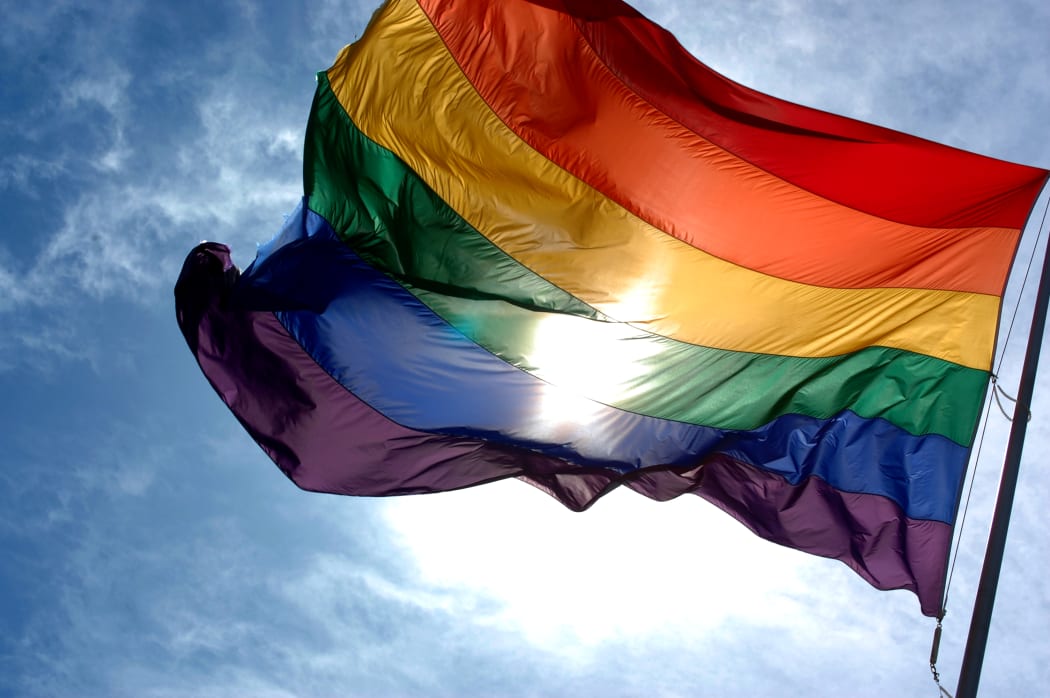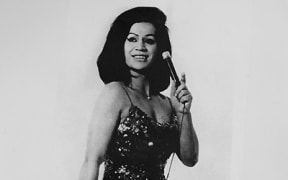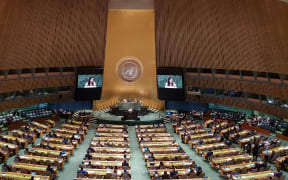For the first time ever during a universal periodic review, United Nations member states have made specific recommendations for New Zealand to improve the human rights of LGBTQI communities.

LGBT flag Photo: RNZ
Justice Minister Andrew Little is in Geneva for New Zealand's third United Nations Universal Periodic Review (UPR), where overnight he reported the current state of Human Rights in New Zealand.
As part of this process, UN member states made recommendations for specific areas New Zealand needs to improve on.
Until now, New Zealand has never had a recommendation from UN member states during this process that relates to sexual orientation, sex characteristics, or gender identity and expression.
Yet three countries - Chile, Australia and Iceland - have highlighted that we have problems that need to be addressed.
These relate specifically to the rights of intersex and gender minority communities.
Chile recommended NZ ended medical procedures on intersex people without their consent.
During the UPR pre-session in July, the Intersex Trust Aotearoa New Zealand (ITANZ) urgently recommended the government address the human rights of intersex people and said that intersex** people still faced significant discrimination in medical, legal and social spheres.
Many doctors still perform non-consensual surgeries on intersex children.
"We are humbled and appreciate the recognition and comments from Chile," ITANZ executive director Mani Mitchell said.
"And we look forward to bodily autonomy being accepted as a human rights issue for all persons born with variations of sex characteristics."
Iceland recommended New Zealand "add gender identity, gender expression or sex characteristics as specifically prohibited grounds of discrimination in Article 21 of the Human Rights Act of 1993".
Along the same lines, Australia "recommends New Zealand amend the Human Rights Act of 1993 to explicitly prohibit discrimination on the basis of gender identity and intersex status".
In its current state, the Human Rights Act doesn't explicitly protect people from discrimination on the grounds of gender identity, but prohibits discrimination on the grounds of sex.
While the Human Rights Commission interprets sex to include gender and gender identity, it noted in its 2008 Transgender Inquiry that to advance the rights of LGBTQI people, trans people needed explicit protection under the Human Rights Act.
Addressing the UN member state recommendations, Mr Little announced that the government was planning to include gender identity as a ground for discrimination under the Human Rights Act.
"To ensure that the law is clear that it includes prohibition of discrimination on grounds of gender identity and to ensure that [it] is very clear to all New Zealanders," he said.
Taine Polkinghorne - the Human Rights Commission's advisor on Sexual Orientation, Gender Identity, and Sex Characteristics - said this was a big deal.
"While the Commission interprets the Human Rights Act to include protection from discrimination for transgender people, trans communities have been clear that they do not feel protected by this."
Amending the Act would bring New Zealand's legislation into compliance with evolving international human rights standards, he said.
"It is within the governments own Rainbow policy to amend the Act and is also an outstanding recommendation from the Human Rights Commission's 2008 Transgender Inquiry.
"The current backlash our trans and non-binary communities are facing in Aotearoa indicate that current existing measures are not enough. In addition to amending the Act, community groups have also called for strong guidance to schools, government agencies, employers, and health services about their responsibilities to protect and uplift the human rights of trans, non-binary, and intersex people."
In his opening marks during last night's UN address, Mr Little said LGBTQI communities were among those in New Zealand that faced more barriers than others, highlighting the higher levels of violence rainbow communities encounter.
He spoke of New Zealand's "unacceptably high levels" of domestic violence, specifically mentioning transgender and queer women.
"One in three women in New Zealand experience physical, emotional or sexual violence from a partner in their lifetime.
"Māori women, queer women, trans women, women living with a disability and young women experience more violence and are more likely to be victimised by current systems," he said.
Mr Polkinghorne said that women and LGBTQI people, including gender minorities, were disproportionately affected by violence.
"We know that violence is frequently used against people based on their actual or perceived sexual orientation, gender identity or expression, or sex. This is commonly in response to individuals who are more visible in society, such as trans women and gender minorities, and same-sex couples.
"Heightened visibility equates to heightened vulnerability, so it is important that queer and trans women are specifically mentioned in anti-violence strategies in order to prevent and respond to their experiences of violence."
He also noted that other submissions on LGBTQI rights were made to the UPR by organisations and coalitions.
"It's fantastic to see some of this work paying off, but there were a number of recommendations that were not picked up."
While several countries commended NZ on its LGBTQI record, the government, in partnership with our communities and organisations, still had a lot to do in order to improve the human rights situation for LGBTQI people in New Zealand, he said.
** Intersex is a term used to describe someone whose sex characteristics don't fit the typical definitions of male or female.



